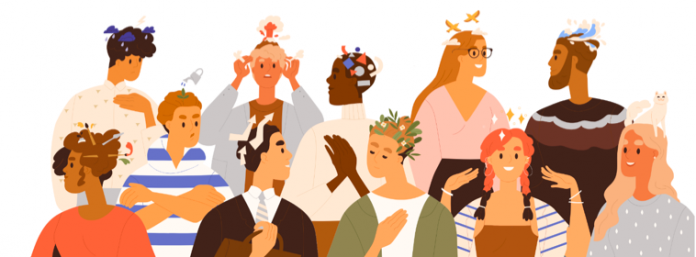Emotions, pop culture, using modern technologies – can such a combination prevent addictions among young people?
The subject of addictions among young people is still one of the priorities of educational and preventive activities in schools and educational institutions. In spite of all the efforts, there has not been any programme across Europe that would give teachers and pupils a comprehensive opportunity to work on their emotions, develop them and show them how to deal with them. In the era of the pandemic and the changes facing contemporary education, the described topics have become even more relevant, and easy and attractive solutions more desirable than ever.
These considerations and the real needs of young people in the area of dealing with their emotions have inspired the international consortium to launch an international project entitled Feel it, co-financed by the Erasmus + Programme. The university, in cooperation with European schools from Spain, Portugal, the Czech Republic, Turkey, Romania and Poland, is successfully implementing this international initiative, which aims to develop students’ emotional and social competences within a blended learning programme using digital tools and distance learning concepts and through the analysis of pop cultural artifacts.
The project plans to create an e-learning course dedicated to students that, in its modules, will address emotions, the competencies to be developed and pop culture artifacts to be used to describe emotions. At the end of each module, students are asked to create their own original project about the emotion they worked on during that part of the course.
The emotions that students will be working on during the course were selected based on Paul Ekman’s theory of basic emotions and are: joy, sadness, anger, and fear. The competences that will be developed through the course content have also been selected for each emotion, i.e: empathy, interpersonal decentration, stress management, communication, cooperation, problem solving, active self-presentation, persuasion. The innovation of the project lies in the fact that the basis of each module are pop culture artifacts appropriately selected for each emotion. The starting point for using pop culture as a method of analyzing emotions was the assumption that pop culture is the natural world of young people’s lives. It is where a person learns behavioral patterns, social roles, and possible scenarios for their own biography. TV series, shows, songs, music videos, comics, and magazines are not only entertainment, but also (and perhaps above all) a vehicle for narrative. The heroes of popular culture are involved in adventures and situations close to those experienced by young people, they experience similar fears, joys, hopes and dreams. During the course, students will also learn about educational tools that they will use to create their own projects describing emotions. The course will introduce them to tools such as creating their own artifacts, digital storytelling, comics, role discovery and social media self-presentation.
The created course will be made available to European schools as an example of good practice in addiction prevention and will be disseminated as a comprehensive program for the development of emotional and social competences of students in educational institutions.
The question remains to be asked Can a teacher “teach” emotional-social competence? “Cannot teach” But he or she can help students learn to develop their competencies on their own, and with the use of tools attractive to the 21st century, this is an attainable goal.
Collegium Balticum (Poland)


